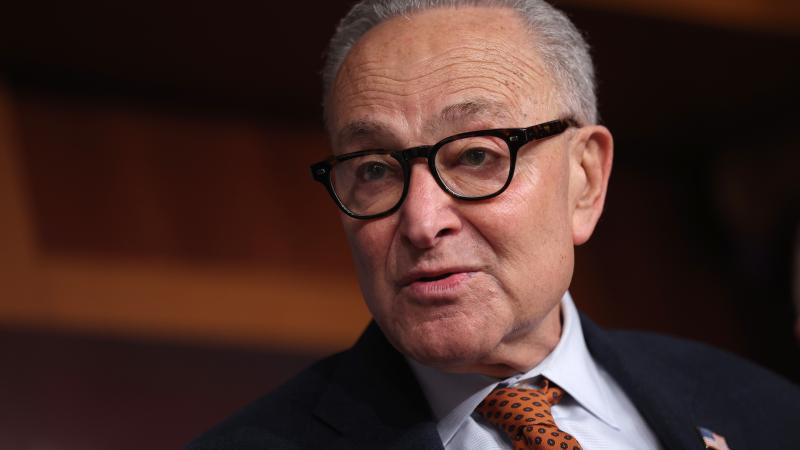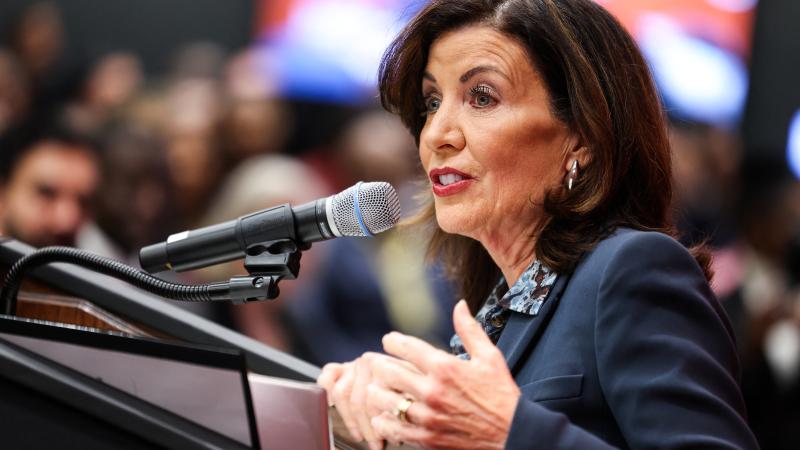Texas Senate passes bill allowing state law enforcement to arrest illegal migrants
Bill creates a state criminal offense of improper entry from a foreign nation.
The Texas Senate has passed a bill authorizing Texas law enforcement officers to arrest foreign nationals who’ve illegally entered Texas from Mexico.
SB 2424, which creates a state criminal offense of improper entry from a foreign nation, filed by Sen. Brian Birdwell, R-Grandbury, passed the Senate along party lines by a vote of 18-12.
Birdwell argues the federal government has abrogated its duty to enforce immigration law and “Texas had to fill the gaps.” However, he also said in a statement, “Texas peace officers would not be enforcing federal immigration laws, but rather a new state-level crime created by the bill: illegal entry into Texas from a foreign nation.”
The bill would create a new offense, “improper entry from foreign nation,” in state penal code. It clarifies that those committing the offense are an illegal “alien” who “enters or attempts to enter this state from a foreign nation at any location other than a lawful point of entry; eludes examination or inspection by United States immigration officers; or attempts to enter or obtains entry to this state from a foreign nation by an intentionally false or misleading representation or the intentional concealment of a material fact.”
SB 2424 also would authorize state law enforcement officers to arrest those who violate the law anywhere in Texas.
State law enforcement officers through Gov. Greg Abbott’s border security mission, Operation Lone Star, are already arresting illegal foreign nationals violating state crimes. These crimes range from criminal trespass, to burglary, to assault, to murder, to trafficking of people and drugs, among others. Texas law enforcement officers do not enforce federal immigration laws.
The bill creates a class A misdemeanor for a first offense, but penalties increase with each subsequent arrest, including up to a second-degree felony; violent offenders would face a first degree felony charge, according to the bill summary.
Birdwell said he hopes with stronger penalties, the legislature was sending a message that entering Texas illegally “comes with real consequences.” He said if foreign nationals want to enter the U.S. illegally they can choose to “go through New Mexico, Arizona, or California.”
Sen. Juan "Chuy" Hinojosa, D-McAllen, disagreed with his approach, arguing OLS has resulted in thousands of arrests that have clogged court systems and facilities, created backlogs and overcrowded jails. He expressed concerns during discussion over the bill that an even greater number of arrests would overwhelm an already overburdened criminal justice system.
Since March 2021, OLS officers have apprehended more than 367,000 illegal foreign nationals including making over 27,000 criminal arrests, according to data from the governor’s office as of April 21.
"I agree that the federal government is not doing enough in meeting its responsibilities along the border," Hinojosa said. "But this bill cannot work. It is going to create complete chaos and a mess along the border."
Birdwell addressed his concerns by saying state resources allocated for border security efforts would increase to $4.6 billion, including opening up additional holding facilities for OLS detainees. DPS troopers would also enforce the law “with an eye towards overcrowding,” citing testimony from DPS Executive Director Steve McCraw, Birdwell said.
DPS troopers are currently focused on arresting human smugglers and illegal foreign nationals they believe are the most dangerous who pose the greatest safety threat: single military-aged men.
Birdwell said his bill doesn’t conflict with federal immigration law: it “neither enforces nor contradicts federal immigration law. It is carefully tailored to avoid intruding on federal immigration enforcement authority while providing law enforcement with an important new tool to deter unlawful entry into Texas."
The bill has been received in the House and is already scheduled to be heard by the House State of Affairs Committee.















